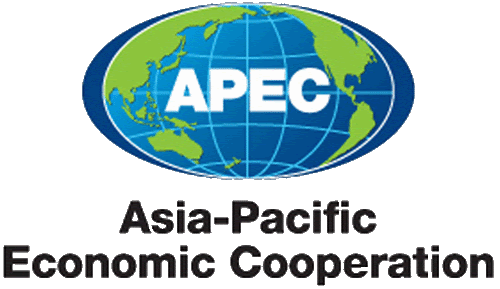 |  |
Secretary Buttigieg’s Statement on the 11th APEC Transportation Ministerial Meeting
Issued by the 11th APEC Transportation Ministerial MeetingAt the conclusion of the 11th APEC Transportation Ministerial Meeting in Detroit, the United States Secretary of Transportation Pete Buttigieg released a statement summarizing the substantive efforts made collectively by APEC Transportation Ministers towards a safe, inclusive, resilient and sustainable recovery from the global pandemic.
Through his statement, Secretary Buttigieg reiterated the critical role that transportation plays in driving economic growth and opportunity, facilitating trade and investment, keeping supply chains open, secure, efficient and resilient, as well as improving connectivity across the Asia-Pacific region.
The statement noted the value of cooperation on supply chains and connectivity and stressed the need to support essential supply chain workforces.
Ministers recognized the role of the transportation sector in addressing climate change by pursuing the transition to new, cleaner and innovative transportation technologies – as well as the job-creation opportunities such a transition creates.
Specific and tangible actions were discussed during the meeting including catalyzing the transition towards low and zero emissions vehicles, facilitating the development of and the transition to sustainable aviation fuels as well as advancing low and zero emission maritime shipping and port decarbonization to help reduce greenhouse gas emissions.
Ministers also underscored the importance of ensuring that transportation policies and infrastructure investments are inclusive, accessible and safe and lead to prosperity for all the people they represent. They reiterated their commitment to advance gender equality and greater integration and empowerment of women and girls of diverse background.
Also read: Secretary Buttigieg: Address Supply Chain Disruptions in Transportation and Connect Communities
For further details, please contact:
Masyitha Baziad +65 9751 2146 at mb@apec.org
Michael Chapnick +65 9647 4847 at mc@apec.org
APEC Pursues Policies Ensuring Equal Access to Education, Training and Jobs
Issued by the APEC Human Resources Development Working Group
Education, labor and human resources development officials are laying the foundation for an inclusive and sustainable economy by pursuing policies that ensure all individuals in APEC have equal access to education, training and employment opportunities.
“As we embarked on this new decade, we found ourselves at a critical juncture: the pandemic has profoundly impacted education systems worldwide, underscoring the urgent need for resilient and adaptable approaches,” said Zhao Li, the Lead Shepherd of the APEC Human Resources Development Working Group.
“We must prioritize the goal of ensuring equal educational opportunities for all, by not only increasing access to education but also by implementing evidence-based policies and programs that address the diverse needs of our students,” Li added.
Meeting in Detroit from 16-19 May, the group which administers regional policy cooperation on education and labor issues, deliberated ways to implement the APEC Education Strategy. This includes exploring initiatives that can enhance and align competencies to the needs of individuals, societies and economies, accelerate innovation, as well as increase employability.
Officials agreed to better assess and bridge skills gaps and strengthen lifelong vocational education and training to adequately prepare the workforce for the changing world of work. They also recognized the important role of social dialogue and to engage the workforce and employers to understand the impact of policies in place.
“It is our responsibility to ensure that no one is left behind as economies in our region continue to evolve and adapt to a rapidly changing world,” said Li. “This means dismantling gender biases, breaking down barriers for persons with disabilities and creating an environment that nurtures diversity and inclusivity. Our efforts should particularly focus on the underserved populations in our economies.”
Recognizing the urgency of addressing climate change, officials explored how to ensure that the transition to a more sustainable economy is inclusive and how green economy training and upskilling can help prepare the workforce to support this transition.
Officials also shared best practices and policies that support an inclusive workforce as well as the emerging challenges of occupational safety and health in the digital age, as the rapid pace of technological advancements, digital transformation and evolving work dynamics only highlights the opportunities to bolster upskilling and reskilling efforts of the workforce. This includes critical thinking, problem-solving, adaptability and digital literacy.
“In developing digital capacities, it is essential to foster public-private partnerships and engage stakeholders from various sectors to ensure that capacity building programs remain relevant, responsive, and aligned with the needs of the labor market,” Li concluded.
For further details, please contact:
Masyitha Baziad +65 9751 2146 at mb@apec.org
Michael Chapnick +65 9647 4847 at mc@apec.org




























































